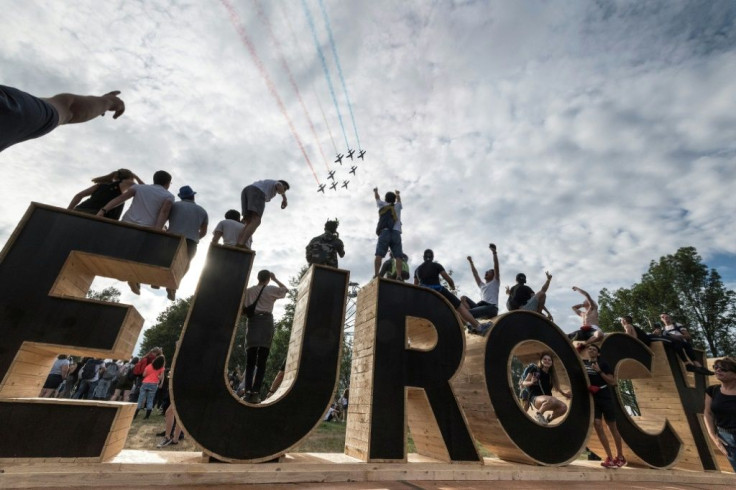European Festivals Face Another Summer Of Cancellations
European festivals are feeling a terrible sense of deja vu as spiking Covid-19 infections and a sluggish vaccine rollout force some of the region's top-selling events to close for the second year in a row.
The latest cancellation came on Friday from the organisers of France's world-renowned comic books festival in Angouleme, due at the end of June.
It joins a raft of casualties that already includes some of Europe's biggest summer music festivals.
In France, these include Solidays, Hellfest, Garorock, Eurocks, and Lollapalooza in Paris, among others -- together accounting for more than one million ticket sales.
Seven German and Swiss festivals have abandoned their plans: Deichbrand, Hurricane, Southside, Rock am Ring, Rock im Park, SonneMondSterne and Greenfield.
The huge parties of Sonar and Primavera in Barcelona are also cancelled for a second year running.
The EU has struggled to procure and deliver vaccines, reaching only 10 percent of the population to date, a rollout described as "unacceptably slow" by the World Health Organization.
The impact is particularly hard-felt in France, whose vast cultural sector has been shut down since late 2020 with no end in sight.
The government has put a limit of 5,000 people on this summer's events, and they must be seated and socially distanced -- not exactly conducive to going wild in a moshpit. Solidays, for example, had 228,000 attendees in 2019.

And that was before President Emmanuel Macron announced a third lockdown starting this Saturday as hospitals are inundated with Covid-19 cases and the country struggles to procure and deliver vaccines.
The organisers of Eurocks, which hosted 128,000 people in 2019, said the rules were a "straitjacket" and "completely incompatible with the spirit of a lively event".
"We aren't denying the pandemic, but what makes us sick to the stomach is that we are cancelling even earlier in 2021 than we did in 2020," said director Jean-Paul Roland.
Festival organisers have also been unimpressed by the 30-million-euro ($35-million) support package offered by the government, which must be shared between everything from rock and classical festivals to art and street theatre.
"We asked for a parachute to take the leap, and instead they gave us a mattress to land on, and we're still arguing about how thick it should be," said Roland, adding that even if the health situation improved rapidly, it would be impossible for big festivals to organise themselves in time.
A handful of events are still holding out in the hope of adapting to the situation.
France's biggest music get-together, Les Vielles Charrues, which had a 270,000-strong crowd in 2019, and more easily adaptable events such as the Avignon theatre festival and Cannes Film Festival are still hoping to go ahead in July.
Britain has had more success with its vaccine rollout, but an earlier wave of infections had already seen many major events cancelled, including Glastonbury Festival, which has been replaced by a live stream concert on May 22 to be headlined by Coldplay.
© Copyright AFP 2024. All rights reserved.











